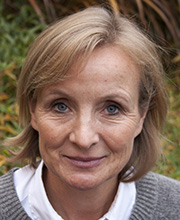Two members of the SAGES Gender and Fieldwork Working Group – Wendy Matthews (Archaeology) and Macarena Cardenas (GES) answer some questions on what fieldwork means to them:
What does fieldwork represent for you?
Wendy:
Fieldwork is fundamental to the disciplines represented within our School of Archaeology, Geography and Environmental Science (SAGES). Staff and students engage in fieldwork activities through research trips and field classes both in the UK and internationally.
Macarena:
Fieldwork is the foundation stone on which we build our research. The success of our scientific findings and academic publications depends on the outcome of our campaigns in the field. Behind any successful fieldwork data set there is, however, much more than simply logistics and data gathering. When we work in the field we rarely do so in isolated conditions. Often fieldwork includes working/liaising with local organisations/charities, community engagement, and/or impact (both environmental, and in terms of a legacy for the community).
What skills can be gained from fieldwork?
Wendy
Fieldwork requires and develops a range of key skills and knowledge at all career stages – whether undertaking Undergraduate, Masters or PhD dissertation and thesis research, or Post-doctoral and Staff research, or Professional employment. Fieldwork includes skills, knowledge and experience in:
• Research design – to define research questions, aims, objectives; design fieldwork strategies and methodologies
• Methodologies – to conduct and record fieldwork accurately
• Ethics – to ensure acknowledgement of the contribution and academic, personal and professional rights of all of those concerned
• Logistics – to plan, organise and manage fieldwork travel, accommodation, resources and supplies, timescales
• Health and Safety – to ensure the well-being of all of those participating
• Cultural and ecological awareness – to respect the social and natural environment in which fieldwork is conducted
• Leadership and teamwork – to ensure the fieldwork is conducted professionally, and that all members are respected and enjoy as well as benefit from the experience
Macarena
It is important to highlight that often fieldwork requires teamwork. Each team member has an important role to play, and this should be valued. I believe that besides the innumerable skills that can be gained from fieldwork, there are also the skills that are required to conduct teamwork. Each team member has an important role to play, and it is good to recognise and value it. During fieldwork you not only apply old and new skills, but you also learn to apply these skills within a team. It is almost as if you are multiplying the skills you are learning – those gained from individual planning and fieldwork, and those gained from being part of a team.
Gender and Fieldwork is a 12 month School wide project running in SAGES – what does this mean to you?
Wendy
Gender is a theme that is central to any discussion of fieldwork in our respective disciplines, in particular the gender roles and gendered experiences of fieldwork and the associated opportunities and challenges around being in the field and careers in fieldwork.
Macarena
Men and women work together in the field. It is important to recognize that male/female academics, students and research staff may experience very different challenges in the field. We want to ask the question – How has gender influenced your fieldwork experiences?



